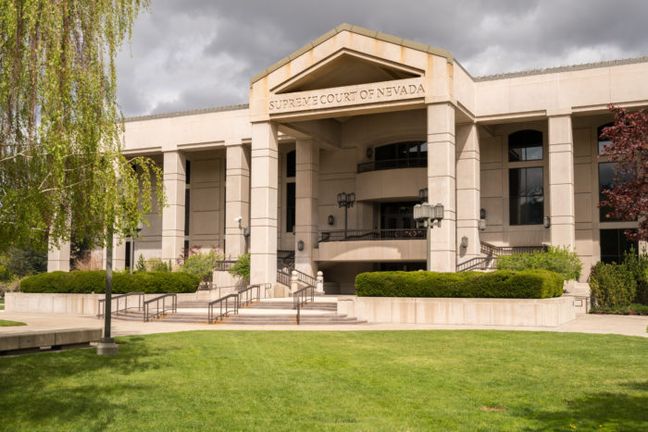NRCP 60(b)(1) provides that a district court may grant relief “from a final judgment, order or proceeding” based on a showing of “mistake, inadvertence, surprise or excusable neglect.” NRCP 60(b)(1). This has given rise to the question of what exactly the court must consider when determining whether excusable neglect exists, and in what instances the court must make these considerations.
In its recent decision, Willard v. Berry-Hinckley, 136 Nev. Adv. Op. 53 (August 6, 2020), the Nevada Supreme Court examined a district court’s denial of Appellants’ Larry J. Willard, individually and as Trustee of the Larry James Willard Trust Fund and Overland Development Corporation (“Appellants”) NRCP60(b)(1) motion to set aside a sanctions order based on excusable neglect. In the district court’s ruling, the district court reasoned that it did not need to consider the factors announced in Yochum v. Davis, 98 Nev. 484, 486, 653 P.2d 1215, 1216 (1982), overruled in part by Epstein v. Epstein, 113 Nev. 1401, 1405, 950 P.2d 771, 773 (1997), to determine whether Appellants established excusable neglect because Yochum concerned relief from a default judgment, and not relief from an order. In Willard, the Nevada Supreme Court disagreed and concluded the district court abused its discretion by failing to address the Yochum factors when deciding Appellants’ NRCP 60(b)(1) motion.
The underlying district court case concerned a breach of contract matter. The Appellants’ attorney failed to comply with Nevada Rule of Civil Procedure (“NRCP”) 16.1 disclosure requirements, discovery requests and court orders, resulting in an unopposed motion for sanctions and motion to dismiss against Appellants. The district court granted the motion to dismiss and motion for sanctions, and dismissed Appellants’ claims with prejudice. Thereafter, Appellants filed a NRCP 60(b)(1) motion for relief. Specifically, appellants argued that their counsel had an alleged psychological disorder which resulted in counsel’s abandonment of Appellants, justifying NRCP 60(b)(1) relief based upon excusable neglect.
During the hearing on Appellants’ motion before the district court, Appellants structured their argument within the framework of the factors announced in Yochum v. Davis, 98 Nev. 484, 486, 653 P.2d 1215, 1216 (1982), which are: (1) a prompt application to remove the judgment; (2) the absence of an intent to delay the proceedings; (3) a lack of knowledge of procedural requirements; and (4) good faith.[1] After declining to consider the Yochum factors, the district court found that Appellants failed to prove excusable neglect by a preponderance of the evidence.
In Willard, the Nevada Supreme Court, made three findings: First, the plain language of NRCP 60(b) does not distinguish between relief from a “final judgment, order or proceeding.”[2] Second, the Nevada Supreme Court’s ability to review a district court’s NRCP 60(b)(1) determination for an abuse of discretion necessarily requires district courts to issue findings pursuant to the pertinent factors.[3] Third, the Nevada Supreme Court expressly held that the district court must issue explicit, detailed findings, preferably in writing, with respect to the four Yochum factors concerning a NRCP 60(b)(1) motion. In doing so, the Nevada Supreme Court in Willard clarified that a district court must consider the Yochum factors in reviewing a Rule 60(b)(1) motion based upon excusable neglect, regardless of whether the relief is from an order or default judgment.
[1] See e.g. Rodriguez v. Fiesta Palms, 134 Nev. 654, 657-659, 428 P.3d 255, 257-259 (2018), citing Yochum, 98 Nev. 486, 653 P.2d at 1216 (overruled on other grounds).
[2] Willard, 136 Nev. Adv. Op. 53 at 6, citing Toll v. Wilson, 135 Nev. 430, 435, 453, P.3d 1215, 1218 (2019).
[3] Willard, 136 Nev. Adv. Op. 53 at 7; See e.g. Rodriguez, 134 Nev. at 659, 428 P.3d at 259.

 Cannabis Workers Allege Quota to Trim 4 Pounds a Day Violates the California Labor Code
Cannabis Workers Allege Quota to Trim 4 Pounds a Day Violates the California Labor Code
 The Ninth Circuit Reminds Us: Every Word Matters
The Ninth Circuit Reminds Us: Every Word Matters
 NO WAY, PRO SE! The Consequences of Abusing the Judicial System as a Pro Se Litigant in Colorado
NO WAY, PRO SE! The Consequences of Abusing the Judicial System as a Pro Se Litigant in Colorado
 Victim of Financial Mismanagement or Unlawful Retaliation? New Jersey City University Program Founder Claims School Retaliated After Reporting Alleged Sexual Harassment
Victim of Financial Mismanagement or Unlawful Retaliation? New Jersey City University Program Founder Claims School Retaliated After Reporting Alleged Sexual Harassment
 “Real Housewives” Gets a Reality Check
“Real Housewives” Gets a Reality Check
 Missing a Chapter: Insufficiency of Expert Deposition Testimony in Medical Malpractice Litigation
Missing a Chapter: Insufficiency of Expert Deposition Testimony in Medical Malpractice Litigation
 Crash Course: Why Summary Judgment Misses the Mark in Illinois Multi-Cause Limousine Crash Collision
Crash Course: Why Summary Judgment Misses the Mark in Illinois Multi-Cause Limousine Crash Collision
 Bitter Truths: Lead, Cadmium, and Defective Pleadings in California Chocolate Class Action
Bitter Truths: Lead, Cadmium, and Defective Pleadings in California Chocolate Class Action
 The Law of Unintended Consequences: Including Insurance Brokers in Litigation Strategy Communication May Waive the Attorney-Client Privilege
The Law of Unintended Consequences: Including Insurance Brokers in Litigation Strategy Communication May Waive the Attorney-Client Privilege
 Disability Benefits for Undocumented Persons in Nevada
Disability Benefits for Undocumented Persons in Nevada
 Nevada Clarifies Service of a NRS Chapter 40 Notice During the Grace Period Does Not Toll Statute of Repose
Nevada Clarifies Service of a NRS Chapter 40 Notice During the Grace Period Does Not Toll Statute of Repose
 Nevada Courts Are Opening Up; What Will That Look Like?
Nevada Courts Are Opening Up; What Will That Look Like?